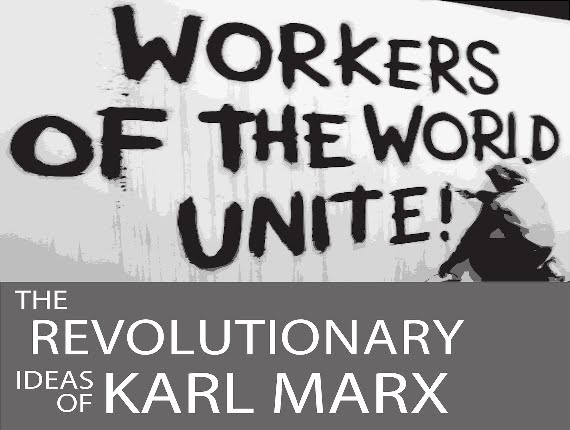There is a specter haunting the Umass Boston Campus– the specter of Communism. The one quite frequently symbolized by the glowering visage of Karl Marx himself. Actually, “haunting” implies too much subtlety. Wherever you go on the school’s grounds, you are likely to be met with a poster, flier, or newspaper embossed with Marx’s classic scowl declaring with severity the “crisis” or “death” of capitalism and delineating the egalitarian solutions.
It is difficult to go a few days without being accosted by a member of a radical left-wing organization like the Eastern Service Workers Association or the Revolutionary Communist Party. The most active political group on campus, or at least the most prolific distributor of material, is the International Socialist Organization. Even professors adorn their offices with slogans such as “Marx was Right”, or “We Are the 99%”.
It is unsurprising that the politics of Umass Boston lean to the far left. Marx would certainly expect such. The school represents the confluence of two traditional adherents to his ideology; academics and the working class. The majority of universities in the country foster far-left views. Academia is the last true bastion of Communist ideology after the collapse of the Soviet Union. What is troublesome is not the prominent leftist thought, but the lack of any sort of challenge to this kind of thinking. The political spectrum at UMass Boston ranges from apathetic to radical left, with a negligible conservative faction among students and no discernible tendencies among the faculty that would break from the norm.
This is a problem for two reasons. First, the default view of an otherwise politically neutral uninformed student is decidedly left-leaning. Ask a random student what the biggest problem facing our country is. The response will likely be something about income inequality or the malfeasant “one percent”. Never mind that the top percentile of income earners pays forty percent of all taxes. Or that more than half of all individuals earning in the top percentile in 1996 had moved to a lower income group by 2005. They might also fail to mention that during the same time frame, more than half of all individuals in the lowest quintile of income earnings had moved to a higher group.
Inequality of income is not in of itself an economic problem, as total wealth does not have a fixed amount and the gains of one group need not be precipitated by the losses of another.
It fits into the leftist paradigm of greedy capitalists abusing the worker for his own gain, so it is repeated constantly by the socialist groups that dominate the campus and by the professors who adhere to such ideology until it becomes ingrained in the minds of the impressionable. Another example of this is how the term “neoliberal ideology” is used widely and disparagingly in campus rhetoric, commonly in reference to policies deemed unfair exploitative.
However, the “neoliberal ideology” of capitalism in the United States has produced the greatest standard of living and level of upward social mobility that the world has ever known. Consider the fact that the poorest 5% of Americans are wealthier than almost 70% of the rest of the world’s population, and tell me how terribly unfair capitalism really is.
Secondly, the preeminence of the left discourages any sort of political dialogue or debate. An ongoing discourse on topics ranging from the quotidian to the metaphysical is one of the proudest aspects of the university system. Schools should encourage intellectual debate and foster a climate conducive to competition of ideas. Certainly, some level of this sort of discussion occurs at UMB, but it is for the most part intramural.
Leftist assumptions generally go unchallenged, and students who might otherwise be inclined to contest these notions remain silent, unwilling to contradict what is, or seems to be, an overwhelming majority. I suspect that there are many people at this school, among students and faculty, who are disappointed with the one sided political culture, but it seems that the mantra of the left is too deeply ingrained for this to change.


